EXPERT
Issues
DOWNLOAD
The VRIC Monitor is a one-of-a-kind, monthly report from the Center for a Secure Free Society tracking extra-regional influence in Latin America. VRIC stands for Venezuela, Russia, Iran, China where Venezuela represents the Bolivarian Revolution and the broader Bolivarian Alliance or ALBA. Likewise, Iran represents the Iranian Revolution and a growing presence of Middle Eastern actors in Latin America, namely its chief proxy, Hezbollah. The monitor is comprised of open source information selected by SFS analysts and fellows. This is not a complete list of media reports on VRIC presence in Latin America, but a snapshot of open-source media highlighting the major areas of VRIC influence.
OVERVIEW
Over the past two months, Latin America has been experiencing a series of political upheavals akin to the type of unrest occurring in the Middle East. On opposite sides of the globe, both regions share a close relationship with the VRIC and similar symptoms of instability fueled by the presence of external state actors. While Nicolás Maduro claims that the Latin American uprisings are part of a master plan by the Foro de São Paulo- a regional, political propaganda forum- he deflects from the role and potential responsibility of VRIC nations behind the regional instability.
At the end of September, Diosdado Cabello, the Venezuelan regime party leader, took a trip to North Korea while Maduro and Tareck El Aissami visited Russia. The following week, the protests in Ecuador began and a Russian delegation visited Venezuela. Russia’s physical presence in the region matches their virtual presence, with alleged cyber interference and manipulation in the ongoing Chilean protests and possible meddling in Bolivia’s fraudulent election.
At the moment, Russia continues to be the most forward-facing VRIC nation in Latin America. However, Iran is quietly forging closer diplomatic ties in the region, namely with Mexico. Iran’s renewed diplomatic influence in the region will be evident if it can avoid the detention and extradition of Ali Akhbar Velayati, a senior advisor to Iran’s supreme leader wanted by Argentine authorities for his role in the 1994 AMIA attack. The Macri government has made one last attempt to seek justice for the AMIA attack by requesting cooperation from the Azerbaijan government to apprehend Valayati if he attends an upcoming summit in Baku.
Azerbaijan recently hosted high-level representatives of VRIC nations for the 18th Summit of the Non-Aligned Movement (NAM) in late October. At the Summit, Russia expressed its intention to expand cooperation with Latin America; Iran’s President Hassan Rouhani met personally with many ALBA leaders and expressed solidarity with Cuba against the U.S.; and North Korea made an appearance, as well.
On behalf of Bolivia- then Foreign Minister- Diego Pary attended the NAM Summit and met with Cuban Foreign Minister Bruno Rodriguez. Meanwhile, in Bolivia, Evo Morales’ regime engaged in massive election fraud, later, confirmed by the Organization of American States. Evo Morales, who is now in Mexico, resigned as president but not before provoking internal chaos to spill onto the streets of Bolivia.
Bolivia is a critical node in the VRIC network in Latin America. From space to nuclear to illicit activity, Bolivia has served as a logistical hub for external state and non-state actors in South America. It remains to be seen if the transition away from Evo Morales will bring stability back to Bolivia, but it is clear that the Bolivians have dealt the first major blow against VRIC influence in Latin America.
MUST READS
- The Splendid Conquest: How Brazil may be involuntarily handing over the country’s strategic information and that of its citizens to China by Leonardo Coutinho, SFS International Fellow
- Russia Is Gearing Up for a Conflict With the United States in the Caribbean in Foreign Policy by Ryan Berg, AEI
- Argentina asks Azerbaijan to arrest Iranian suspect in Jewish center bombing in The Times of Israel
- Argentina looks to Mexico for support to push a progressive agenda in Latin America by Federico Rivas Molina & Javier Lafuente in El País (content in Spanish)
- The President of Peru Stages a Coup by Mary O’Grady, Wall Street Journal
- To get rid of Maduro in Venezuela, US must challenge his enablers in The Hill by Joseph Humire & Christina Armes, SFS Junior Research Fellow
- Venezuela’s mass migration poses a danger to the Western Hemisphere in The Hill by José Gustavo Arocha, SFS Research Fellow
- Hundreds of Russian Mercenaries Now in Venezuela, US Admiral Says by Richard Sisk, Military.com
- Electoral integrity analysis: General Elections in the Plurinational State of Bolivia, Organization of American States (in Spanish)
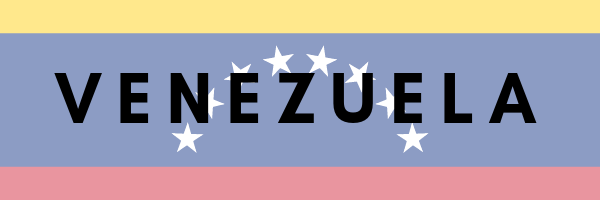
The Maduro regime and the Guaidó interim government remain stuck in stalemate as the clock winds down for a transition in Venezuela. The interim Guaidó government achieved a recent victory moving to pass the Rio Treaty at the Organization of American States, advancing toward multilateral sanctions against the regime. However, the Guaidó government sustained a loss when Venezuela was voted into the UN Human Rights Council.
As the Bolivarian regime and opposition battle for power, Maduro has been fortifying his regional and extra-regional networks and finding innovative ways to work around sanctions and intense international pressure. High-level Venezuelan officials have engaged in numerous meetings abroad and at home with VRIC allies to enforce both security, material support, and collaboration. As Latin America was engulfed in protests, Maduro and Diosdado Cabello traveled to Russia, North Korea, and China, and attended the Non-Aligned Movement Summit in Azerbaijan to meet with Iran. Russian officials have also made recent working visits to Venezuela and Bolivia.
The resignation of Evo Morales has left a vacuum, that, as of this writing, is creating tension on the streets of Bolivia. Morales’ asylum in Mexico positions him in a VRIC-friendly country that allows the VRIC to inform his intentions to potentially connect with indigenous movements in southern Mexico and Guatemala. VRIC nations, namely Russia, Venezuela, and Cuba, are trying to establish a global narrative that Evo Morales was outed in a coup d’état; however, the international community highlights the massive electoral fraud committed by Evo Morales and his illegitimate regime.
President-elect Alberto Fernández of Argentina reportedly worked behind the scenes to help Evo Morales attain asylum in Mexico. This emerging Mexico-Argentina strategic alliance was highlighted in the recent Grupo de Puebla meeting in Buenos Aires in mid-November. The Bolivia crisis, compounded by the conflict in Venezuela, and the many uprisings throughout the region have placed the VRIC in an advantageous position to unite many leftist, populist movements throughout Latin America against the United States.
VENEZUELA AID TRACKER
| United States | $192 million dollars |
| Argentina | Help unit |
| Canada | $39 million dollars |
| Chile | 17 tons of food & medical supplies |
| China | 200 tons of medicine & supplies |
| Cuba | Medical aid to transplant patients |
| EU | €65 million euros + €120 million euros pledged |
| Germany | €5 million euros |
| Iran | Unspecified pledge & medical aid |
| Italy | €2 million euros & medical aid to transplant patients |
| New Zealand | $500,000 dollars |
| Palestine | Surgical team |
| Russia | 335 tons of food & medical supplies |
| South Korea | $3 million dollars |
| Spain | €2 million euros |
| Sweden | $7 million dollars |
| Taiwan | $500,000 dollars |
| Turkey | Medical aid to transplant patients |
| UAE | Dh10 million |
| UK | £6.5 million pounds |
- The Trump administration is imposing sanctions on five Venezuelan officials, who had been previously identified by the European Union or Canada, who are associated with violence against peaceful opposition protesters. – AP News on 05-NOV
- The National Assembly of Venezuela appointed a preliminary commission to designate an Elections Committee who will subsequently elect the new rectors of the National Electoral Council. – CNN on 05-NOV (content in Spanish)
- Guatemalan President-elect Alejandro Giammattei said that he will break off all diplomatic relations with Nicolás Maduro when he takes office on January 14. – Reuters on 04-NOV
- Cuban Communist Party leader Raul Castro, President Miguel Diaz-Canel, and Nicolás Maduro signaled punishing U.S. sanctions would only stiffen their resolve to stick together and support social change in the region, as they presided over the closing session of a solidarity conference in Havana that drew more than 1,300 social activists, mainly from Latin America. – Reuters on 03-NOV
- Venezuela’s Foreign Ministry said it was expelling El Salvador’s diplomats from the country, in response to the Central American country’s decision to kick out their counterparts representing Maduro. – Reuters on 03-NOV
- Venezuela’s opposition government escalated its efforts to protect Citgo Petroleum Corp from seizure, seeking a U.S. court order erasing bondholders’ collateral rights over the state-owned refiner and invalidating $1.7 billion in debt. – Wall Street Journal on 29-OCT
- Maduro’s regime is considering the option of handing over the control of the state oil company PDVSA to Russia as a form of payment given the million-dollar debts it has with Putin. – PanAm Post on 22-OCT
- Activists responded with outrage after Venezuela won a fiercely contested vote for a seat on the UN’s Human Rights Council- for a three-year term starting in January- despite its well-documented record of human rights abuses. – The Guardian on 17-OCT
- Maduro says he has a crypto-powered plan which will help the country in maintaining the flow of imports and exports. – FX Street on 01-OCT
- The member countries of the Rio Treaty agreed to impose sanctions against members of the Maduro regime, but refused to consider military force. The approved resolution allows member countries to sanction and extradite members of the Maduro regime who participate in drug trafficking, terrorist activities, organized crime and human rights violations, as well as freeze their assets. – The Miami Herald on 23-SEPT
- Maduro‘s regime is pushing the emigration of Venezuelan criminals to the detriment of the countries that welcome the thousands of citizens fleeing the Chavista dictatorship. – PanAm Post on 19-SEP
- A Venezuelan police unit has been carrying out extrajudicial executions and arbitrary arrests in poor communities that no longer support the Maduro regime. – Human Rights Watch on 18-SEP
- US Treasury Department investigations suggest that Venezuela has been using CLAP food shipments from Mexico to receive hidden cash payments from Mexican drug cartels in return for drugs sent by regime leaders. – ABC Internacional on 16-SEP (content in Spanish)
THE ALBA
- Evo Morales, the former president of Bolivia who resigned under pressure from street protests and the military, flew to Mexico, but not before recording an audio message promising Bolivians, “I will return soon with strength.” – New York Times on 12-NOV
- Alberto Fernández was on his phone all day coordinating Evo Morales’ trip out of Bolivia for Mexico, the first country to offer him political asylum.The President-elect also made calls to leaders looking to inform them of “the coup” and gain international support for Morales. – Pagina12 on 12-NOV (content in Spanish)
- Cuban state run media reports the President of the Republic of Cuba, Miguel Díaz-Canel Bermúdez, strongly condemned the coup in Bolivia, stating on his Twitter account, “With a violent, cowardly coup the right wing has attacked democracy in Bolivia.” – Granma on 11-NOV
- Turkish state run media reports Russia said it was “alarmed” by the “dramatic development of events” in Bolivia. In an online statement, Russia’s Foreign Ministry backed Bolivian President Evo Morales, underlining that the government’s readiness to seek “constructive solutions through dialogue” had been “crushed by the opposition in an orchestrated coup.” – Anadolu Agency on 11-NOV
- Bolivia’s political crisis deepened as Evo Morales resigned amid allegations of “serious irregularities” during last month’s election and pressure from the country’s armed forces. – CNN on 11-NOV
- President-elect Alberto Fernández expressed content for Lula da Silva’s release during remarks at the second inaugural meeting of Grupo Puebla in Buenos Aires on November 9-10. – La Nación on 09-NOV (content in Spanish)
- El Salvadoran President Nayib Bukele admitted he received $1.9 million from Inversiones Valiosas S.A. (Inverval), who is funded heavily by Alba Petróleos, when he was mayor of Nuevo Cuscatlán. – El Faro on 07-NOV (content in Spanish)
- Brazilian authorities investigating a mysterious 2,000 ton oil spill along a 1,300-mile stretch of the country’s coastline reportedly are now pointing their fingers at a Greek-flagged ship. The Bouboulina, which departed Venezuela in mid-July, is believed to be the source. – Fox News on 04-NOV
- Argentina looks to Mexico for support to push its progressive agenda in Latin America, demonstrated by Fernández’s meeting with ALMO to solidify ties, shortly after his election. – El País on 04-NOV (content in Spanish)
- Tensions remained high in Panama after nearly 50 people were arrested in clashes with police during the fourth consecutive day of protests over constitutional reforms. – Morning Star on 02-NOV
- Bolivian engineer Edgar Villegas presented new evidence against the supposed electoral fraud in an interview with CNN. The suspicions are related to alleged evidence of fraud at polling stations where absentee voters (who did not show up to vote) were registered. – El Deber on 30-OCT (content in Spanish)
- Cuban state run media reports the ministers of civil aviation of Nicaragua and Venezuela signed a cooperation agreement to facilitate trade, aero-commercials deals, and air connections between Central and South America, digital news site Informe Pastran reports. The accord was signed during the Venezuela Air Expo 2019 fair. – Prensa Latina on 29-OCT
- During a special session of the OAS, Bolivian Minister of Justice Héctor Arce and Minister of Foreign Affairs Diego Pary defended the Supreme Electoral Tribunal (TSE) and assured there was no possibility of election fraud. – Los Tiempos on 25-OCT (content in Spanish)
- Colombian Ambassador to the U.S. Francisco Santos says Venezuela is an existential threat to his country. Venezuela is providing a safe haven to guerrillas bent on destabilizing the Iván Duque administration in Bogotá. “The threat of Venezuela — and the instability that Maduro wants to create in Colombia — are very clear,” Santos said. – The Miami Herald on 24-OCT
- A final vote count by Bolivian authorities handed Evo Morales an outright victory as thousands of angry protesters marched against him chanting “fraud,” allegations that threaten to mar his fourth term. – Reuters on 22-OCT
- The OAS Electoral Integrity Analysis concluded the results of Bolivia’s election cannot be validated due to a number of irregularities including, flawed transmission systems for both preliminary election results and the final count and forged signatures and alteration of tally sheets. – OAS on 20-OCT
- The Bureau of Industry and Security (BIS) of the U.S. Department of Commerce announced that it will further restrict the Cuban regime’s access to commercial aircraft and other goods. – The U.S. Department of Commerce on 18-OCT
- During protests in Ecuador last month, Rafael Correa asked, both in front of the press and through social networks, for early elections and offered himself as a candidate for the presidency. “Correa plotted Moreno’s dismissal from Cuba and Venezuela,” Juan Fernando Flores, president of CREO Latino (the opposition party that confronted Moreno in the last elections), told the PanAmPost. – PanAm Post on 15-OCT
- Haiti, which relies heavily on oil imported from Venezuela, has suffered fuel shortages and blackouts since Venezuela’s crisis-stricken government stopped oil shipments earlier this year. – National Interest on 25-SEP
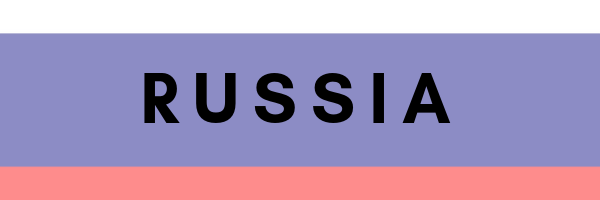
Russia’s financial support to Maduro proves critical in sustaining his regime through the political and economic crisis in Venezuela. In turn, rumors propagated by a Venezuelan news outlet are claiming that Russia’s state-owned oil company Rosneft may take over Venezuela’s PDVSA, prompting the Guaidó interim government to seek protection of CITGO. Russia has honed in on its assets in Venezuela and strengthened its already robust security of the Maduro regime- comprised of mercenaries, missiles, and military oversight.
Russia’s military positioning in Venezuela occurs concordantly with its strategic positioning in the Carribbean and enhanced nuclear cooperation with Cuba, combined with an agreement for collaboration with the China-controlled space station in Argentina. Increased instability throughout Latin America, particularly in Chile, Ecuador, and Bolivia, occur simultaneously as Moscow extends its cyber arm in South America using social media exploitation to exacerbate the instability. The U.S. State Department suggested that Russia has a digital footprint in Chile, allegedly “skewing [protests] through the use and abuse of social media.” Earlier in June, Russia reportedly sent a group of political consultants to Bolivia to use social media to steer the election towards Evo Morales.
Russian Deputy Foreign Minister Sergei Vershinin recently promised that Russia would expand cooperation with non-aligned countries to “enhance global security”– however head of U.S. Southern Command Adm. Craig Faller is convinced that Russia “is out to make the United States look bad [in South America] at every turn of the corner.”
- Russia criticized mounting pressure from the Bolivian opposition, who called on the OAS to conduct an audit of the recent election, denounced as fraudulent. – Los Tiempos on 08-NOV (content in Spanish)
- A total of $315 million in dollar and euro notes were sent in six separate shipments from Moscow to Caracas from May 2018 to April 2019. – Bloomberg on 01-NOV
- The U.S. State Department warned that it had seen indications of Russian “influence” on recent unrest in Chile, “skewing [protests] through the use and abuse of social media,” where two weeks of protests and riots have rocked the administration of President Sebastian Pinera. – Reuters on 31-OCT
- Vladimir Putin hailed Cuba’s resilience in the face of U.S. pressure as he hosted his Cuban counterparts for talks to expand cooperation and boost economic ties. Russia is making no secret of its desire to play a reliable partner to the island. – The Associated Press on 29-OCT
- Russian state media reports that Russia aims to continue expanding cooperation with the Non-Alignment Movement (NAM) member states in order to strengthen global stability, Russian Deputy Foreign Minister Sergei Vershinin said during the 18th NAM Summit in Baku in a speech published by the Russian Foreign Ministry. – TASS on 27-OCT
- Months prior to Morales’ fourth-term “win” as president, several Kremlin-related Russian political consultants responsible for social media were sent to La Paz to help Morales, three unrelated sources told The Project. Moscow wants to guarantee its state-owned companies, primarily Rosatom, a long presence in Bolivia. – Proekt on 23-OCT
- A story in Venezuela’s El National newspaper is making the rounds in Russian media – reporting that Russian oil giant, Rosneft, is planning on taking over PDVSA. In exchange, Russia is rumored to be offering debt relief to the struggling Latin American country. – Forbes on 22-OCT
- Uranium One Group, a subsidiary of Russia’s state nuclear company Rosatom, may buy a controlling stake in a lithium project in Chile’s Atacama salt flat from Wealth Minerals Ltd. – Reuters on 15-OCT
- Russian state media reports state corporation Roscosmos and the Argentina National Space Activities Commission have signed a bilateral intergovernmental protocol on cooperation in space research and the use of space with peaceful aims at the Argentine Foreign Ministry. – TASS on 08-OCT
- Russian state media could help Cuba build nuclear power plants and kick-start the country’s oil and gas development through an intergovernmental agreement on nuclear power, medicine, and agriculture. – UPI on 03-OCT
- A group of Russian military specialists arrived in the Venezuelan capital of Caracas, the Interfax news agency reported on Wednesday, as Venezuelan President Nicolas Maduro meets with his Russian counterpart, Vladimir Putin, to improve cooperation. – Reuters on 25-SEPT

Iran typically operates in the shadows in Latin America via intelligence networks, diplomatic back channels, and terror proxies, namely Hezbollah. However, Iranian formal diplomatic presence in the region recently increased as Iranian President Hassan Rouhani held bilateral meetings with ALBA leaders at the Non-Aligned Movement Summit in October. The Summit, hosted this year by Azerbaijan, demonstrates Iran’s shoring up of its allies, not only in Latin America, but worldwide, in pursuit of its expansion of the Iranian revolution.
Azerbaijan will also host the Second Summit of Religious World Leaders in its capital, Baku, in mid-November, where Ali Akhbar Velayati, a high-level advisor to Iran’s supreme leader and former foreign minister, is scheduled to attend. The Argentine Foreign Ministry formally asked for Azerbaijan’s cooperation to detain and extradite Velayati for his role in the 1994 AMIA bombing.
Like Russia, Iran also employs a cyber strategy in Latin America. Facebook recently shut down numerous fake accounts in Latin America, some spreading Iranian propaganda in Spanish. Many of these fake social media accounts were in Mexico, during a heightened period of parliamentary diplomacy between Mexico and Iran. Mexican President Andres Manuel Lopez Obrador is extending relations with Argentine President-elect Alberto Fernandez, whose incoming vice president is complicit in whitewashing Iran’s involvement in the 1994 AMIA attack.
- Argentina has asked Azerbaijan to arrest a high-level Iranian adviser to the country’s supreme leader in connection with the bombing in 1994 of the Buenos Aires AMIA Jewish center. – The Times of Israel on 10-NOV
- Iran grows even closer to the Maduro regime, in the wake of new “scientific and technological” agreements of which little detail is known, but could become a threat, not only to the security of Venezuela, but to the region. – PanAm Post on 08-NOV (content in Spanish)
- Iranian state media reports during her visit to Pardis Technology Park Venezuelan Science and Technology Minister Gabriela Jiménez Ramírez said Iran and Venezuela have the opportunity to collaborate in the field of science and technology. They signed an MOU and Jiménez Ramirez also met with Iran’s Minister of Science, Research, and Technology. – Mehr News on 02-NOV
- Iranian state media reports Mohammad Taghi Hosseini, the Iranian ambassador to Mexico City met with Laura Angélica Rojas Hernández, the President of Mexico’s Chamber of Deputies. Rojas Hernández voiced her country’s interest in expanding cooperation with Iran through the Iranian friendship group. – Mehr News on 26-OCT
- Facebook deactivated four networks of pages, groups, and accounts with Russian and Iranian origin that were spreading disinformation. One of them was disseminating content from the Iranian state-run media outlet HispanTV in Latin American countries, namely Mexico. – Aristegui Noticias on 21-OCT
- Iranian state media reports that according to the Foreign Ministry Media Department, Alfonso Zegbe of Mexico bid farewell to Zarif at the end of his mission to Iran. – Islamic Republic News Agency on 16-OCT
- Chinese state media reports Lebanon is ready to sign a free trade agreement with the Mercosur countries. The remarks came from Lebanese Foreign Minister Gebran Bassil during his meeting in Beirut with representatives from Argentina, Brazil, Paraguay, and Uruguay to discuss the steps that should be taken by Lebanon to join Mercosur. – Xinhua on 14-OCT
- State-controlled media reports Venezuela’s Ambassador to Tehran Carlos Antonio Alcala Cordones urged Iran not to enter talks with the US government under the pressure of sanctions, warning that the White House is pursuing plots to usurp their energy resources. – Tasnim News on 06-OCT
- A group of guards from Syria reportedly arrived in Venezuela to operate as a security team for Venezuela politician Tareck El Aissami, who is among the most wanted in the US for drug trafficking. – Al Arabiya on 07-SEP
NON-ALIGNED MOVEMENT
- The Heads of State and Government of the Non-Aligned Movement congratulated Evo Morales on his re-election in a special declaration during the Summit. – Non-Aligned Movement on 26-OCT
- Chinese state media reports the 18th Summit of the Non-Aligned Movement (NAM) concluded in Baku, with member states calling for strengthening multilateralism with the United Nations at the core. – Xinhua on 26-OCT
- Russian state media reports Russia aims to continue expanding cooperation with the Non-Alignment Movement (NAM) member states in order to strengthen global stability, Russian Deputy Foreign Minister Sergei Vershinin said during the 18th NAM Summit in Baku in a speech published by the Russian Foreign Ministry. – TASS on 26-OCT
- Pro-government news reports the Qatar Minister of State for Foreign Affairs H E Sultan bin Saad Al Muraikhi met separately with the Foreign Minister of the Republic of Nicaragua Denis Moncada Colindres on the sidelines of the 18th Summit of the Non-Aligned Movement, where they reviewed bilateral cooperation relations. – The Peninsula on 26-OCT
- Azerbaijani state media reports Nicolás Maduro arrived in Azerbaijan to attend the 18th Summit of the Non-Aligned Movement where he was met by Azerbaijan’s Deputy Prime Minister Ali Ahmadov, Deputy Foreign Minister Nadir Huseynov, and other officials. – Azertac on 24-OC
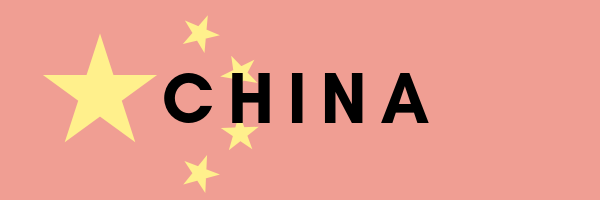
China is ramping up its 5G networks and converging on increasing access of critical infrastructure in Latin America and the Caribbean. In September, thirty-seven 5G networks in 20 nations worldwide became functional and China is expected to advance its Latin American 5G operations as soon as next year. It appears a major focus is on Brazil, where the PRC is confident that the Bolsonaro government will choose Huawei to build out its 5G mobile network.
Instead of partnering with governments on large critical infrastructure projects in Latin America, China has been buying up or acquiring major shareholder stakes in private companies that supply critical infrastructure. By bidding for ownership in major private companies in Latin America, China is avoiding scrutiny by regional governments through operating in domestic subsidiaries to veil Chinese ownership.
China’s advances can prove harmful to both the region and U.S. interests, as evidenced by two U.S. Senators’ calls for investigation of JBS, S.A., a Brazilian meat company that is the largest meat producer in the world. Not only has JBS affected the American meat market, but it has ties to the Maduro regime in Venezuela and its executives are under scrutiny for corruption. JBS serves as a case study for the numerous majority Chinese-owned companies in Latin America that pose the same risk.
- China’s government says it’s confident that Brazil will choose Huawei Technologies Co. to build its ultra-fast fifth generation mobile network, a high-stakes decision that would likely put President Jair Bolsonaro in collision course with the U.S. – Yahoo Finance on 11-NOV
- JBS, a Brazilian company that is the largest meat producer in the world, has received $78 million in government pork contracts funded with the bailout funds — more than any other U.S. pork producer. JBS’s winning hand in securing a quarter of all of the pork bailout contracts is one example of the power a small number of multinational meat companies now hold in the United States. – Washington Post on 05-NOV
- The 5G race is on. Ahead of schedule, China switched on its 5G network, and as of September, thirty-seven 5G networks were live in over 20 countries. Processes are expected to begin next year in Latin America, as auctions and frequency bids are being prepared. – BNAmericas on 04-NOV
- State-owned Chinese firms CNPC and its subsidiary PetroChina have both suspended loadings of Venezuelan crude. China Oil, the trading arm of oil firm CNPC—wary of provoking US sanctions—cancelled deliveries in August. CNPC will now extend the embargo on direct imports of Merey blend, a mix of Venezuelan crude and bitumen, for a third consecutive month. – Petroleum Economist on 18-OCT
- Chile’s foreign investment promotion agency InvestChile is working to increase China’s direct investment in the country with its portfolio of some 150 projects requiring $18 billion in the public sector alone. – BNAmericas on 16-OCT
- Cuban state media reports that the First Vice President of the United Socialist Party of Venezuela (PSUV), Diosdado Cabello, made a working visit to China, in the context of the 20 years since Hugo Chavez’s first trip to China. – Prensa Latina on 15-OCT
- California-based Sempra energy announced that its officials entered into an agreement to sell equity interests in its businesses in Chile, including its 100 percent stake in Chilquinta Energía, the third-largest electricity distributor in Chile, for $2.23 billion in cash to a subsidiary of the state-owned electric utility monopoly of China. – San Diego Tribune on 14-OCT
- Two U.S. senators called on the U.S. Treasury to open an investigation into the world’s largest meat processing company, Brazil’s JBS S.A. (JBSS3.SA), due to alleged ties with Maduro. Senators Rubio and Menendez sent a letter to Treasury Secretary Mnuchin asking for the Committee on Foreign Investment in the United States to review transactions by JBS – Reuters on 08-OCT
- Bolivian Foreign Minister Diego Pary awarded China’s ambassador to Bolivia, Liang Yu, the “Orden Simón Bolívar en Grado Cruz”, at the end of his diplomatic mission in the country. – Bolivian Ministry of Foreign Affairs on 08-OCT (content in Spanish)
- Chinese telecoms equipment maker Huawei Technologies Co is joining forces with China Mobile (0941.HK) to potentially enter a dispute to buy struggling Brazilian carrier Oi SA (OIBR3.SA), in an attempt to boost its footprint in Latin America’s largest market. – Reuters on 21-SEP
- In 2018, the Sino-Haitian trade volume reached $694 million even though the two countries do not have diplomatic relations. In a written interview with the Nouvelliste, Wang Xiangyang, a representative from China’s trade development office in Haiti, said his country wants the political hurdle between the two countries to be removed as soon as possible. – Le Nouvelliste on 03-SEP (content in French)
NORTH KOREA
- Choe Ryong Hae, member of the Presidium of the Political Bureau of the Central Committee of the Workers’ Party of Korea (WPK), first vice-chairman of the State Affairs Commission of the Democratic People’s Republic of Korea (DPRK) and president of the Presidium of the Supreme People’s Assembly, who is leading a delegation of the DPRK, made a speech at the 18th Summit of the Non-Aligned Movement. – KCNA Watch on 30-OCT
- The right-hand man of Maduro was in North Korea leading a “high-level delegation,” state media in the North said Thursday, as both nations grapple with economic pressures from international sanctions. North Korean leader Kim Jong Un “received a personal letter and gift” from Maduro, which was delivered by Diosdado Cabello, KCNA reported. – France24 on 26-SEP

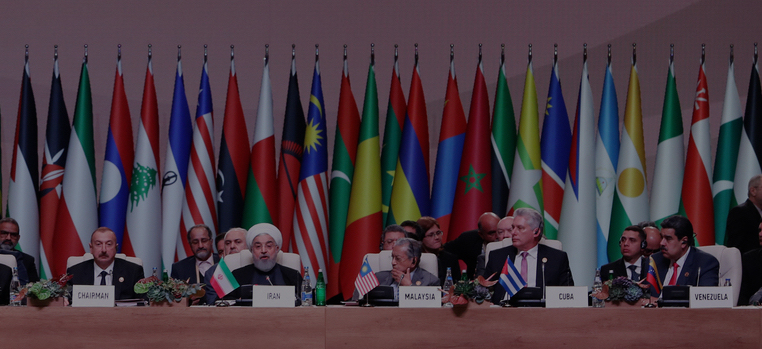
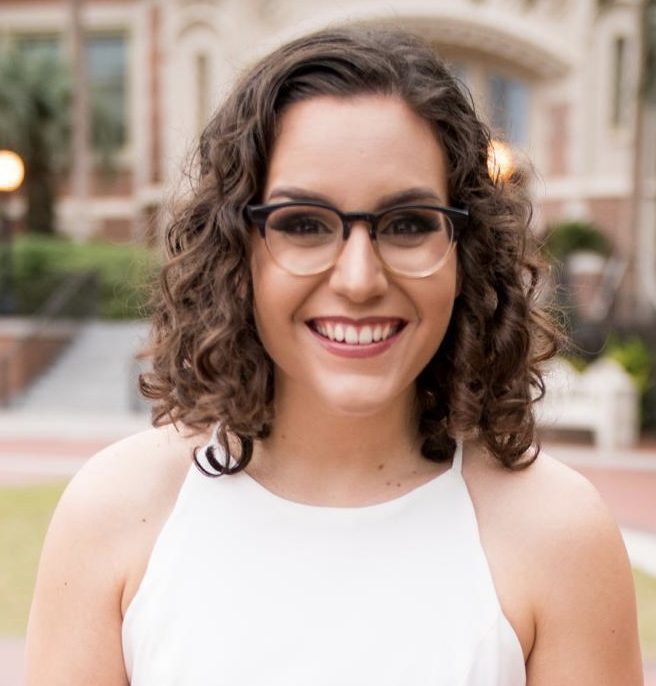 Christina Armes Hunter
Christina Armes Hunter